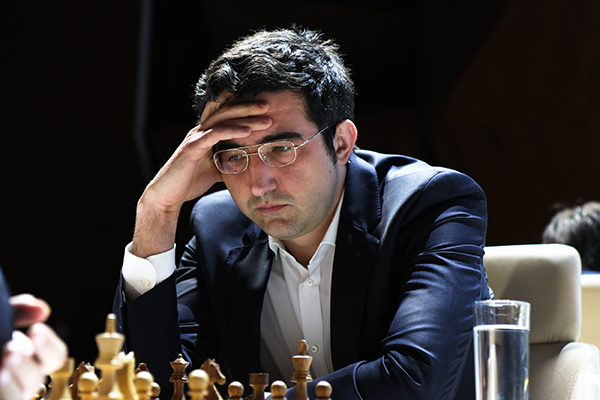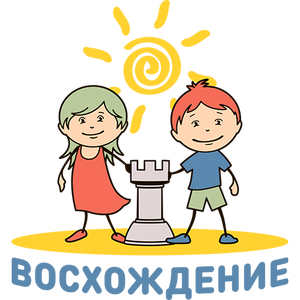Vladimir Kramnik: Not Extending Career, but Paying the Debt!
The 14th world champion gives an interview to the Sport-Express newspaper.

Twenty years ago, this day, a history-making world championship match between world champion Garry Kasparov and runner-up Vladimir Kramnik finished in London. In an interview with Sport-Express, the 14th world chess champion narrates how the match influenced his life, explains why he quit over-the-board chess, shares his views on a person's purpose in life, and teaches young chess players how to survive the pandemic to the benefit of their careers.
– Vladimir, you became the 14th world chess champion 20 years ago. Is it fair to say that this event has split your life into "before" and "after"? How quickly did you realize that it would "never be the same"?
– I didn't think about it during the match, but I realized it rather quickly after the victory. I don't think it was me who changed much. It was instead a turnaround of life circumstances. Those were turbulent years when the world championship cycle was virtually nonexistent. It took participating in negotiations and public events to bring it back. It gave life a different rhythm. It is no longer a big deal now that I've developed an "immune system" to it. However, it didn't come easy!
Needless to say, the world chess champion has always been an iconic figure vested with specific responsibilities. It was a hard-earned but insanely exciting experience.
– In hindsight, can you say that you were gearing up to win the title of your life?
– It was never anything of the kind. Since childhood, I have loved chess, and I was always confident to become a professional player one day. That said, my focus has always been on chess itself rather than on my place in the ranking table. The title itself has never warmed my soul!
All in all, I believe the top place in the chess world to be vastly overrated. This is a distinctive feature of modern culture. It has always been beyond me. There are 7 billion people living on Earth. What difference does it make if you're the first, second, or third? You are an outstanding and well-done person in the field of your choice anyway! There is no lack of those ready to do whatever it takes to secure the top place even at the cost of doping or sacrificing their lives and health.
– Boris Vasilyevich Spassky had a similar attitude to the title. I have always believed that you share much in common – both over the board and in your attitude to life.
– I agree with you on this one: he also played much before winning the world championship match and becoming champion. By the way, it was Spassky who highlighted his three years as a world champion holder as his life's most distressing period. For me to repeat this statement would be overkill. It is true, though, that it applies to me to a certain extent. The champion's years are not my life's most pleasant and happy, that's for sure.
Of course, I was upset over losing the title to Anand because the match shaped poorly for me. On the other hand, things were otherwise back on track for me psychologically after that.
– Still, the world champion's title is not about high public status only! This is also about the associated material benefits. Wasn't it a pity to let it all go?
– I was financially independent going into my first match already. My financial well-being had no particular bearing on my life because I have inexpensive hobbies. I like music, art in all forms, and science. I also like playing tennis, watching football and hockey. This is also true about keeping in touch with interesting people.
That's why I had no lack of money before the match. I got the opportunity to lend more support to my family in Tuapse after the victory. Then I started a family. I am ready to repeat what I said before the 2000 match that if I were offered an unpaid match with Garry Kasparov for any reason, I would not hesitate for a second. This is insanely interesting, after all! I was ecstatic about the prospect of challenging such a player in a 16-game matchup. It beats any amount of money!
– All in all, you played four world championship matches. Can you single out any of them in particular as your life's most crucial?
– Not really. Each was interesting in its own way and made an integral part of my life. It's the same as with children: you can't prefer one to the other. Everyone is attractive in their own way!
– Let me rephrase the question then: do you regret not having played Magnus Carlsen? There came a moment when this match looked inevitable!
– It would be exciting to contest this chess player of a different generation. (I would still, frankly speaking, like to play Carlsen even now.) On the other hand, it's not in me to regret anything. I could have even challenged Fischer in the Fischer chess in the early noughties. We were conducting serious negotiations, and there were some sponsors willing to see the match happen, but it did not work out. Anyway, I played every one I wanted to play. I had no idea about such a career in store for me when I began! To complain that I haven't faced Carlsen in a match on top of that would be equal to refusing God's gifts, as they say.
– You announced your retirement nearly two years ago after the Wijk aan Zee tournament. Would you please explain the reason behind this decision?
– I just felt I was no longer really interested. There came to me an unknown before feeling that participating in a tournament was as good as not participating. As if I could read a book instead! As a result, I could no longer bring myself to focus and calculate lines when needed. You try to motivate yourself with words like, "Well, you are in the midst of a game, after all – do your best not to lose or even win," but it's not the attitude but rather forcing yourself. The decision-making mechanism is out of order, and you realize only too well that you care about the game result no more. This approach will not allow you to stay at the top. Otherwise, I am not a person who can play just for the sake of playing. This is the only reason behind my decision to quit.
The only thing that still motivated me was the Olympiad. This being a team game and shared responsibility added motivation!
– Great athletes are known to switch to coaching upon finishing their careers. Do you have any such plans?
– I look at it from a slightly different angle – somewhat philosophically. I do not attempt to build myself up as a coach. I take it not as an extension of my career but as a payment of my debt. I am grateful to chess for everything it has gifted me with. It's not just success, recognition, and the like. Chess has shaped me as an individual. Now I am willing to pay something back. I want to pass my experience to talented children. Over my career, I have accumulated huge baggage of ideas and findings. Besides, I realize the importance of hearing the right words of instruction when still young from authority figures. This is not only and not even so much about the opening lines. I am ready to pass on my insight into the game.
– It probably looks more like mentoring than coaching, right? Was it not what Botvinnik practiced?
– We might say so. I visited four sessions of his school, and I still remember them vividly, for it was such a rich experience. This is not to mention the number of strong grandmasters who finished this school!
In my opinion, one of a person's primary purposes in life is to pass something they have accumulated on to the next generation. It is only natural to pass on your knowledge to as many talented people as possible, hoping that it will make a difference.
– Are you happy with the results displayed by Sirius's chess section students? After all, you are one of the master-minds and powerhouses of this school.
– I believe that Sirius's education process is well on track and brings forth decent results already. Suffice it to recall that this school's representatives took up all Russian national team's youth boards. Our students' contribution to the Russian team's overall victory made a significant mark at the last Olympiad.
Sirius has formed a reliable coaching team over these years. The intensity of the educational process has recently dropped for apparent reasons. To make up for it at least partially, jointly with the Chess Federation of Russia and Ramax, we launch a series of online training sessions for our country's best young chess players in November.
– What advice would you give to young athletes to improve in the time of pandemic? The calendar of all international tournaments has disrupted, and competitions are either canceled or postponed altogether.
– It may sound strange, but I think that this is a perfect time for young chess players. I've never identified myself with those who only train for specific tournaments. Chess takes a methodical approach without any breaks. First of all, you need to study continuously to improve your chess by uprooting some of your shortcomings. Chess is complicated, and you need to continually build up your base of knowledge and skills to perform at the highest level.
The pandemic will be over sooner or later, and when it ends, we will immediately see who has spent this time to their advantage. Those who work hard and stay away from the bullet blitz on the Internet will rise to the top! Now is a critical time for young chess players to lay the foundation for building their entire careers.






















